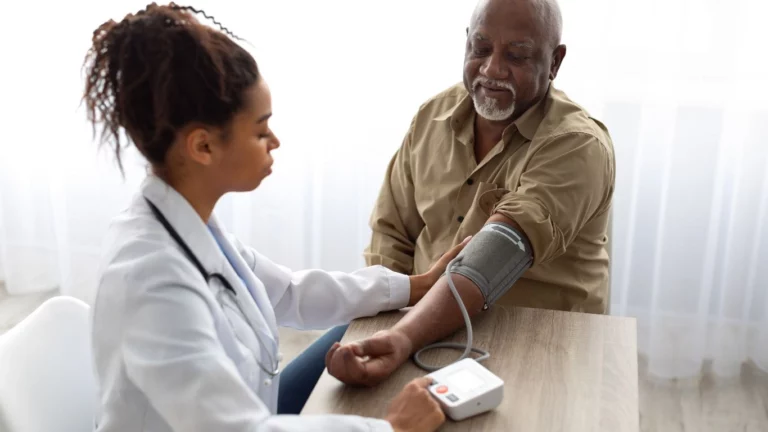Can Skipping Meals Cause GERD Flare-Ups? Find Out the Truth!
As a Medical Assistant with years of experience in a Gastroenterology Clinic, I’ve seen firsthand the struggles that people with GERD (Gastroesophageal Reflux Disease) face. Whether it’s a mild discomfort or a severe flare-up, managing GERD can often feel like walking a tightrope. Among the many factors that can trigger or exacerbate GERD symptoms, something that’s often overlooked is meal timing.
You may be wondering: Can skipping meals cause GERD flare-ups? It’s a question that I get asked a lot, and it’s a valid one considering how much our eating habits affect our digestive health. In this post, I’m going to dive into how meal timing impacts GERD and explore whether skipping meals is something you should be concerned about.
How Meal Timing Affects GERD: The Science Behind It
Before we get into the specifics, let’s first understand the relationship between your meals and your digestive system. When you eat, your stomach produces acid to help break down the food you’re consuming. Normally, the acid stays in the stomach, and your body keeps it in check. However, if something goes awry, such as the lower esophageal sphincter (LES) relaxing at the wrong time, acid can flow back up into the esophagus. This is the essence of GERD – when stomach acid consistently irritates the lining of your esophagus.
Now, this is where meal timing becomes crucial. Skipping meals, especially for extended periods, can throw off this delicate balance. For instance, when you go without food for several hours, your stomach still produces acid, but there’s no food to digest. This means that the acid has nowhere to go, and it can begin to irritate your stomach lining, leading to an increased risk of reflux when you do eventually eat. So, can skipping meals cause GERD flare-ups? Absolutely. Let’s dig deeper into why this happens.
Why Skipping Meals Can Trigger GERD Symptoms
Increased Acid Production
One of the main reasons skipping meals can trigger GERD symptoms is due to the increased production of stomach acid. When you skip meals, your stomach doesn’t get the signal to stop producing acid. This results in an overproduction of stomach acid that can, in turn, create a more acidic environment in the stomach. If the acid isn’t neutralized or absorbed by food, it can eventually irritate your stomach lining or even flow into the esophagus, causing that familiar burning sensation.
The Hunger Hormones Connection
Another factor at play is the role of hunger hormones. When you go for extended periods without eating, your body releases certain hormones like ghrelin to signal that you’re hungry. Interestingly, ghrelin doesn’t just stimulate appetite – it also increases gastric motility (the movement of food through the stomach and intestines). This increase in motility can cause a sudden rush of stomach acid, which might not be adequately managed when you skip meals.
Delayed Gastric Emptying
Skipping meals can also contribute to delayed gastric emptying. Normally, after you eat, food moves from the stomach into the small intestine. But when you don’t eat, your stomach can remain fuller for longer, leading to a condition called gastroparesis, where the stomach empties more slowly. This delay in gastric emptying can result in more acid exposure in the stomach, further increasing the risk of acid reflux and GERD flare-ups.

Skipping Meals vs. Overeating: Which Is Worse for GERD?
Many people with GERD find themselves caught in the dilemma of whether it’s better to skip meals or overeat. Both scenarios can trigger GERD flare-ups, but in different ways. While skipping meals can lead to acid overproduction and reflux, overeating can cause the stomach to become too full, which can put pressure on the LES and lead to acid reflux. The key takeaway here is balance. Both extremes are bad for your digestive health, so it’s essential to maintain a consistent eating pattern with appropriately sized meals.
Why Overeating Isn’t a Good Alternative
On the other hand, overeating is equally problematic for those with GERD. After a large meal, the stomach becomes overstretched, which increases the pressure on the LES and makes it more likely for acid to escape into the esophagus. This can cause heartburn, chest pain, and other uncomfortable GERD symptoms. So while skipping meals may lead to too much acid being produced, overeating leads to physical pressure on the stomach that can also trigger reflux. It’s a tough spot to be in, but understanding the balance between meal timing and portion control is the first step in managing GERD effectively.

The Best Eating Habits for Managing GERD
If you’re trying to manage GERD, it’s crucial to focus on regular, smaller meals rather than skipping meals or overeating. By eating smaller portions every few hours, you help your body regulate acid production and prevent the stomach from becoming too full. This can relieve pressure on the LES and reduce the chances of acid reflux.
Eat Smaller, More Frequent Meals
Instead of large meals, try to eat smaller meals spread throughout the day. Aim for 4-6 smaller meals instead of the traditional 3 large ones. This gives your body enough time to digest each meal without overwhelming your stomach. The goal is to maintain steady acid production without excessive buildup. And if you’re prone to GERD flare-ups, I highly recommend staying away from large, heavy meals that are difficult to digest, such as fatty or spicy foods.
Listen to Your Body’s Hunger Cues
Another helpful habit is learning to listen to your body’s hunger cues. Don’t wait until you’re starving to eat, as this can lead to overproduction of acid. Instead, try to eat when you’re moderately hungry, and aim to stop eating before you feel too full. This can help prevent both the acid overproduction associated with skipping meals and the discomfort caused by overeating.

Conclusion: Meal Timing Is Key for GERD Management
So, can skipping meals cause GERD flare-ups? Yes, it can. Skipping meals can lead to increased acid production, disrupted digestion, and ultimately more reflux. However, overeating isn’t a viable alternative, either. The key is to maintain a regular eating schedule with smaller meals that don’t overwhelm your digestive system. As someone who has witnessed how meal timing impacts GERD symptoms firsthand, I can’t stress enough how important it is to find that balance. If you can manage your meals, not only will you reduce the likelihood of GERD flare-ups, but you’ll also feel better overall.
What to Eat When Managing GERD: Foods That Help Prevent Flare-Ups
So, we’ve already established that meal timing plays a major role in managing GERD. But what about the types of foods you eat? Many people with GERD often wonder what’s safe to eat and what could trigger a flare-up. From my experience, I can tell you that certain foods can help ease symptoms, while others can make things worse. Let’s take a look at some of the best foods for people with GERD, and how they can help keep those pesky flare-ups at bay.
Foods That Are Gentle on the Stomach
When it comes to GERD, the key is to choose foods that are easy on the stomach and don’t contribute to acid reflux. Here are a few go-to options that I’ve seen help many of my patients:
- Oatmeal: Oatmeal is a fantastic option because it’s a whole grain that’s low in fat and high in fiber. It helps absorb stomach acid, making it an ideal breakfast choice for those managing GERD.
- Bananas: Bananas are a GERD-friendly fruit, as they’re low in acid. They help coat the stomach and can even act as a natural antacid. I’ve often recommended bananas to patients as a healthy snack or addition to a smoothie.
- Ginger: Ginger is well-known for its ability to calm nausea and reduce inflammation. It’s a great natural remedy for GERD and can be added to tea, smoothies, or even as a spice in cooking.
- Leafy Greens: Vegetables like spinach, kale, and lettuce are all great choices for people with GERD. They’re not only low in acidity but also full of nutrients that support overall health.
- Lean Proteins: Skinless chicken, turkey, or fish are all excellent sources of protein without the added fat. High-fat foods can trigger reflux, so opting for lean protein sources can help prevent flare-ups.
How Hydration Plays a Role in GERD
Staying hydrated is crucial when you’re managing GERD. Sometimes, the stomach acid can be a little more aggressive if you’re dehydrated, which might lead to discomfort. In my experience, I’ve noticed that patients who regularly drink enough water tend to have fewer flare-ups than those who are dehydrated. But remember, it’s not just about drinking water – it’s about staying away from drinks that could make things worse.
Drinks to Avoid with GERD
Just as some foods can trigger GERD symptoms, there are certain drinks that can do the same. From coffee to alcohol, here’s what you should be mindful of when it comes to your beverage choices:
- Coffee: While it’s tempting to grab a cup of coffee in the morning, caffeine is known to relax the LES and increase acid production. If you love coffee, try switching to decaf or limiting your intake to avoid triggering reflux.
- Alcohol: Alcohol can irritate the esophagus and relax the LES, which increases the risk of acid reflux. I often advise my patients to limit or eliminate alcohol, especially if they’re dealing with chronic GERD.
- Carbonated Drinks: Fizzy drinks like soda can cause bloating and increase stomach pressure, which can push acid into the esophagus. Opting for flat water or herbal teas is a much safer choice.
- Citric Beverages: Fruit juices like orange, lemon, and grapefruit juices can be quite acidic, and they can trigger heartburn and reflux. If you enjoy fruit juices, try diluting them with water or opting for less acidic varieties like apple or pear juice.

GERD and Stress: Can Skipping Meals Make It Worse?
It’s not just food and drink that influence GERD symptoms – stress can also play a huge role. If you’ve ever been under stress, you know how it can upset your stomach. For those with GERD, stress can act as a trigger, making symptoms worse. But here’s where skipping meals can compound the problem.
The Stress-Acid Connection
Stress can increase stomach acid production, which makes GERD symptoms more likely to flare up. But when you skip meals, you’re adding to that stress. Going without food can lead to irritability, anxiety, and even physical discomfort. This kind of stress can cause your body to go into overdrive, further increasing stomach acid. Combine that with an empty stomach, and you’ve got the perfect storm for a GERD flare-up.
How to Manage Stress to Improve GERD Symptoms
To reduce stress, I always recommend taking small breaks during the day. Whether it’s a walk outside, some deep breathing exercises, or even a few minutes of meditation, these simple techniques can help lower your stress levels and in turn, improve your GERD symptoms. Stress management is just as important as meal timing when it comes to keeping your digestive system in balance.

The Role of Sleep in GERD: Can Skipping Meals Affect Your Rest?
We all know how important sleep is for overall health, but did you know that poor sleep can contribute to GERD symptoms? It’s true – when we don’t get enough rest, our bodies can struggle to manage acid reflux properly. When you’re sleep-deprived, the lower esophageal sphincter (LES) might not function as well, allowing stomach acid to travel back up into the esophagus.
Why Skipping Meals Can Disrupt Your Sleep
If you skip meals throughout the day, you might feel a bit hungry before bed, which can affect your ability to fall asleep or stay asleep. Hunger can make you feel restless, and if you’re awake longer than usual, you might be more prone to experiencing GERD symptoms, like heartburn, when you lie down. That’s because lying down makes it easier for stomach acid to flow back into the esophagus.
Tips for Better Sleep with GERD
To improve your sleep quality and reduce GERD symptoms, try to avoid large meals or snacks right before bed. Instead, aim to have a light, easily digestible snack if you’re feeling hungry – like a small banana or a handful of almonds. Also, try elevating the head of your bed a few inches to prevent acid from rising up during the night. Prioritizing sleep hygiene and making sure your stomach is comfortable can go a long way in reducing nighttime GERD flare-ups.
GERD Medications: How They Interact with Meal Timing
When lifestyle changes alone aren’t enough to manage GERD symptoms, medications often come into play. As someone who’s worked in a Gastroenterology clinic, I can tell you that medications can be incredibly effective, but timing is everything. One question I frequently hear from patients is whether taking medications on an empty stomach or after meals makes a difference. The answer is: it definitely can.
Common GERD Medications and When to Take Them
There are several types of medications commonly prescribed for GERD, each with its own set of instructions. Here’s a quick rundown of the most common ones:
- Proton Pump Inhibitors (PPIs): These are among the most effective medications for reducing stomach acid. PPIs, such as omeprazole or esomeprazole, should generally be taken on an empty stomach, at least 30 minutes before a meal. Taking them with food can reduce their effectiveness.
- H2 Blockers: Medications like ranitidine or famotidine work by reducing stomach acid production. These are typically taken either before or after meals, depending on the specific drug. However, taking them too late at night can sometimes interfere with sleep and exacerbate GERD symptoms.
- Antacids: These are quick fixes for heartburn, neutralizing stomach acid almost immediately. Antacids are usually taken after meals or when heartburn occurs, but they should be spaced out from other medications, as they can interfere with absorption.
It’s essential to follow your doctor’s instructions regarding when and how to take your medications. Even though medications can alleviate symptoms, they don’t fix the underlying causes of GERD. That’s why adjusting your meal timing and food choices is just as important as taking your prescribed medications.

The Role of Weight Management in GERD Control
If you’re dealing with GERD, you might already know that weight management is a key factor in controlling symptoms. Excess weight can put pressure on the stomach and LES, increasing the likelihood of acid reflux. Skipping meals or eating irregularly can exacerbate this issue, leading to weight fluctuations that could worsen GERD.
How Meal Timing Affects Weight
Regular meal times can help with weight control. When you skip meals or eat erratically, you may end up overeating at your next meal, which can lead to weight gain over time. Plus, eating large meals in one sitting can put pressure on your stomach, making it more likely that acid will backflow into the esophagus. This is where the importance of a consistent eating schedule comes in – eating smaller, well-balanced meals throughout the day helps to regulate your metabolism and prevent overeating.
Managing Your Weight Through Healthy Eating Habits
Maintaining a healthy weight doesn’t mean you have to starve yourself or drastically cut calories. It’s all about balance. Here are a few tips that I’ve found work well for GERD patients who are trying to manage their weight:
- Eat small, balanced meals: Instead of big, heavy meals, aim for smaller meals that contain a good mix of protein, fiber, and healthy fats. This can help you feel full without overloading your digestive system.
- Practice mindful eating: Pay attention to how much you’re eating and how it makes you feel. Eating slowly and mindfully can prevent overeating and give your body the time it needs to signal when it’s full.
- Incorporate more fruits and vegetables: These foods are not only healthy but also gentle on the stomach. Plus, they’re low in calories, making them ideal for weight management.
- Stay active: Regular exercise, such as walking or light cardio, can help you maintain a healthy weight and relieve stress, both of which are crucial for GERD management.

When to Seek Professional Help for GERD
While meal timing and dietary changes can do a lot to manage GERD, there are times when professional intervention is needed. If you’ve tried adjusting your meals and medications but still experience frequent flare-ups or worsening symptoms, it might be time to seek further medical advice.
Signs That GERD May Need More Than Lifestyle Changes
There are a few key indicators that it’s time to talk to your doctor about your GERD management plan:
- Persistent heartburn: If you’re experiencing heartburn more than twice a week, it’s a sign that your GERD may need more than just dietary changes.
- Difficulty swallowing: If swallowing food becomes painful or difficult, you may have developed an esophageal condition like esophagitis or strictures, which requires medical attention.
- Chronic coughing or hoarseness: GERD can sometimes cause chronic coughing or a hoarse voice due to acid irritating the vocal cords. If this is happening frequently, it’s worth discussing with your doctor.
- Unexplained weight loss: If you’ve lost weight unintentionally or are having trouble eating due to GERD symptoms, it’s essential to consult with a healthcare provider.
In some cases, surgery might be considered if lifestyle changes and medications are ineffective. One common procedure for GERD is a fundoplication, where the top of the stomach is wrapped around the LES to prevent acid reflux. Your doctor will discuss whether this is appropriate based on your specific condition.
Final Thoughts: Finding the Right Balance for GERD Management
Managing GERD isn’t just about what you eat—it’s about when you eat, how you eat, and how well you manage stress, sleep, and other lifestyle factors. By paying attention to meal timing, food choices, and medication schedules, you can take a proactive approach to reduce the frequency and severity of GERD flare-ups. It’s all about balance, and as someone who’s been on the front lines of helping patients with GERD, I can tell you that small changes can make a huge difference in improving your quality of life.
Remember, managing GERD is a journey, not a quick fix. But with patience, consistency, and the right approach to your diet, medication, and overall health, it’s entirely possible to live well with GERD.
Disclaimer: The information in this article is for educational purposes only and is not intended as medical advice. Please consult your healthcare provider for personalized guidance and treatment.
For more information on managing GERD and other gastrointestinal issues, feel free to check out our other resources on Health U.S. A..

Camellia Wulansari is a dedicated Medical Assistant at a local clinic and a passionate health writer at Healthusias.com. With years of hands-on experience in patient care and a deep interest in preventive medicine, she bridges the gap between clinical knowledge and accessible health information. Camellia specializes in writing about digestive health, chronic conditions like GERD and hypertension, respiratory issues, and autoimmune diseases, aiming to empower readers with practical, easy-to-understand insights. When she’s not assisting patients or writing, you’ll find her enjoying quiet mornings with coffee and a medical journal in hand—or jamming to her favorite metal band, Lamb of God.







